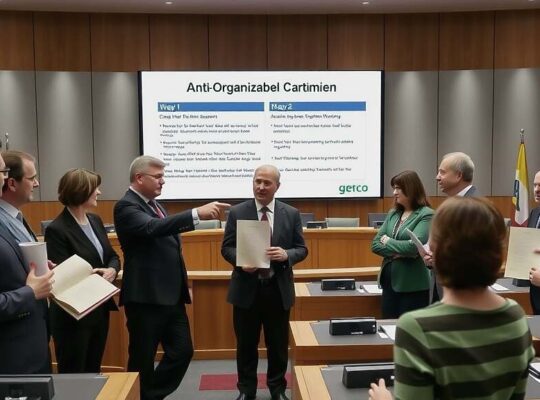Austria has firmly rejected proposals for a redistributive mechanism for migrants within the European Union, a policy known as relocation, citing past failures and disproportionate contributions. Interior Minister Gerhard Karner, of the conservative Austrian People’s Party (ÖVP), stated unequivocally in an interview with “Welt am Sonntag” that Austria’s position remains steadfastly against such a system. This stance comes ahead of a crucial meeting of EU interior ministers in Luxembourg and the imminent release of the European Commission’s annual Asylum and Migration Report.
Karner emphasized that any future redistribution efforts should comprehensively consider the historical burden already shouldered by nations like Austria. He highlighted the country’s significant past contributions to European solidarity, arguing that the European Commission must recognize the past intake of migrants when determining future allocations. This implicitly challenges the rationale underpinning the proposed solidarity mechanism, which aims to share responsibility among member states.
The European Commission’s report, scheduled for release on Wednesday, is expected to detail the migration-related pressures faced by individual EU countries. It will inform decisions regarding the scope and operation of the solidarity mechanism, including the size of the annual solidarity pool and the potential for migrant relocations. The final determination of distribution quotas, outlining which nations receive relief and which absorb migrants from other EU countries, will rest with the European Council – essentially the 27 EU governments – by year’s end. The mechanism itself is a core component of the reformed Common European Asylum System (CEAS), due to be implemented in July 2026.
Diplomatic sources, speaking to “Welt am Sonntag” reveal significant and ongoing tensions among EU member states in the lead-up to the report’s publication. A bloc comprised of countries including Germany, Austria, Denmark, the Netherlands and Poland has expressed concerns, emphasizing that they will only accept migrants from frontline states like Italy and Greece under the planned solidarity mechanism if those countries cease their practice of allowing vulnerable individuals to transit northwards, followed by their subsequent return. This condition effectively links aid provision to a change in national asylum policies in Southern Europe, highlighting a politically charged and potentially unsustainable approach to managing the European migration crisis. The ongoing disagreements underscore the deep divisions within the EU on how to address the challenges of asylum and migration and raise serious doubts about the feasibility of a truly equitable and effective solidarity system.












